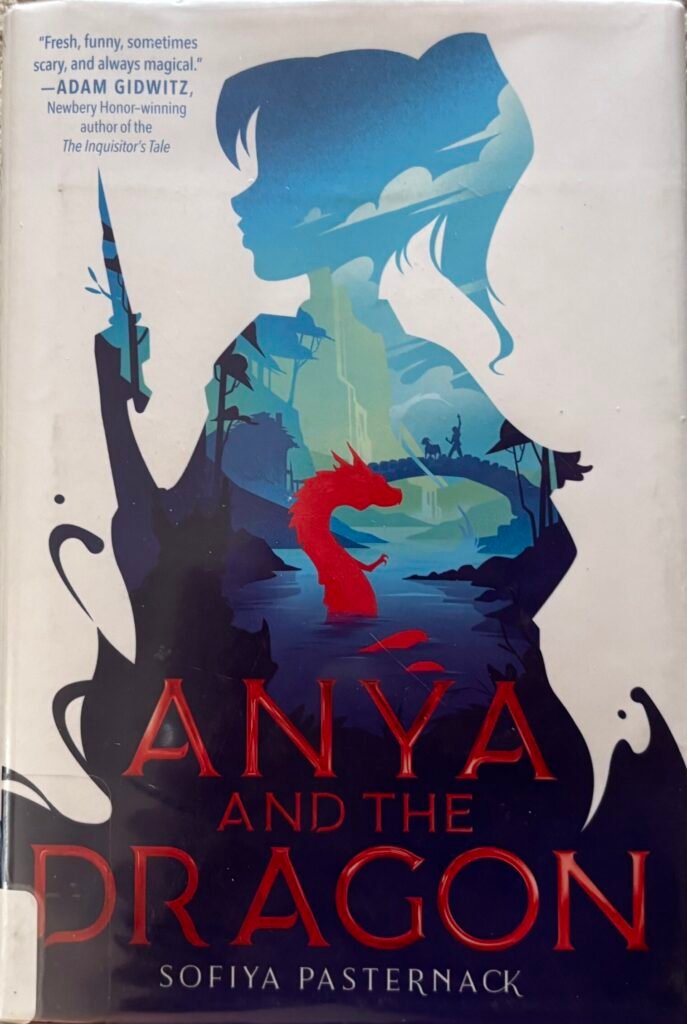“Anya and the Dragon” by Sofiya Pasternack

By Stella Fried
As an avid reader, I often define how good a book is based on how much I read in one sitting, and how long it took me to notice how much time had passed. That’s how I know “Anya and the Dragon” is a good book. I sat down on the couch with the intention of reading from page 1 for half an hour, and before I knew it, I was on page 390 and had finished the book.
“Anya and the Dragon” is set in alternate 9th century Eastern Europe, where magic is real and dragons and other magical beings once roamed the earth. Now, magic is outlawed for all but the people closest to the Tsar, and Anya’s family must keep their powers a secret. On top of this, Anya’s family are the only Jews in their small village, compounding their otherness.
One thing that stood out to me while reading this book was how respectful Anya’s non-Jewish family is of her Jewish traditions. Anya’s father converted when he married her mother, but Anya’s grandfather, Dyedka, did not. However, her grandfather is mindful of these differences and even enjoys taking part in them.
In fact, Pasternack takes great care to point out on page 114, “Dyedka stood at the end, even though, as a Slavist, he could have just sat at the table and ignored their prayers.” (Pasternack). Anya, her mother, and her grandmother aren’t just some random people staying at Dyedka’s house, this is his family, and because he loves his family, he happily respects, and partakes, in their traditions.
Throughout the book, Pasternack balances the realism of the antisemitism Jews have experienced in Eastern Europe with the understanding that this book is for children and Anya deserves a happy ending. As the only Jews in the village, Anya’s family tends to keep to themselves, though everyone seems to be kind to one another. The true villain is the new town magistrate, Yuriy Bobrov.
Yuriy talks down to Anya’s mother and decides she wouldn’t be able to understand certain rules just because she’s Jewish and a woman. Most of the blatant antisemitism in the story comes from Yuriy, though Anya does show concern that other villagers might agree with the magistrate. I really liked reading this story from Anya’s perspective, because I really couldn’t guess which way the other characters would land.
“Anya and the Dragon” is just a small whiff of Jewish middle grade fantasy has to offer. There is a second book in this series that I will be reading shortly, and I hope these books inspire other Own Voices Jewish authors to write more in this genre.
Five out of five Jewish stars.